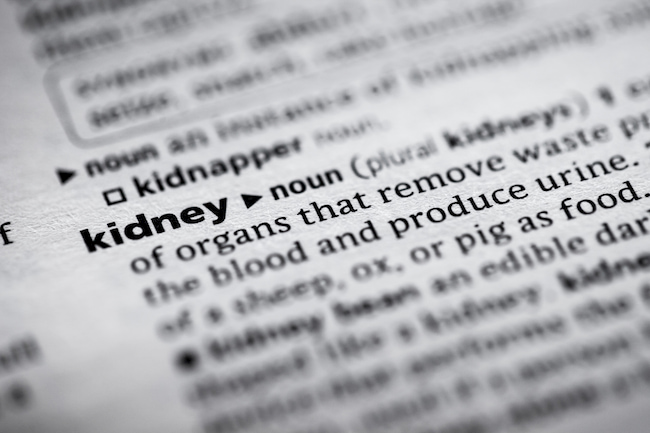They may be two small, fist-sized organs, but your kidneys play a big role in ensuring your body functions properly. How much do you know about how your kidneys keep you healthy?
There are so many parts of the human body that we so rarely think about unless something goes wrong. But it never hurts to familiarize ourselves with how the body works — and the importance of its various parts!
Today, we’re taking a look at the kidneys and the essential role they play in the body. Amar Singh, MD, board-certified urologist with Academic Urologists at Erlanger, offers some insight:
Q: First things first, what are the kidneys?
A: The kidneys are organs shaped like beans and approximately the size of a fist. They’re located near the middle of your back, just beneath the rib cage.
As for what they are: they essential serve as waste management for the body. As part of the renal system, they’re responsible for sifting waste and extra water out of the blood and then begin the process of moving it out of the body.
You’d probably be surprised just how active the kidneys are — normal, healthy kidneys process about a half cup of blood each minute! That’s 720 cups of blood processed through each kidney each day.
Q: How do the kidneys work?
A: The kidneys work with precision! Each kidney contains around a million filtering units called “nephrons,” which contain a filter (glomerulus) and a tubule. These two parts work together — the glomerulus filters the blood, and the tubule returns the necessary substances back to the blood while removing the waste.
To break that down even more, as blood flows into a nephron, it first enters through the glomerulus, which is a filter made up of tiny blood vessels. The tiny walls of the filter allow small particles, waste and water to flow through, but not larger molecules like proteins and blood cells.
The filtered substances flow through to the tubules, which remove excess acid while retaining minerals and nutrients the body needs. The remaining fluid and waste turn into urine, which rests in the bladder and will eventually leave the body.
Q: Why are the kidneys important?
A: We’ve already talked about their waste removal function, but the kidneys also play other key roles. Beyond ensuring your blood has the right combination of water, salts and minerals, the kidneys also make hormones responsible for key bodily functions, including:
- Controlling blood pressure
- Keeping bones strong by producing an active form of vitamin D
- Making red blood cells
Q: What happens when the kidneys don’t work properly?
A: When you have two healthy kidneys, we say that you have 100 percent of “renal function.” In reality, most people don’t need that much function — in fact, some perfectly healthy people are born and live with only one kidney.
A small drop in renal function usually isn’t a significant problem. You can be healthy with even 50 percent of your renal function intact.
But as the kidneys begin to fail and renal function dips below 50 percent, a person will likely experience health issues, particularly when function drops below 20 percent. When a person’s renal function drops to around 10 or 15 percent, dialysis or transplantation is required.
There are many different reasons why the kidneys may not function effectively, including high blood pressure and diabetes. Both of the conditions we mentioned contribute to chronic kidney disease, where the kidneys are negatively impacted.
Certain medications, including over-the-counter pain relievers, can also negatively impact kidney function.
Over time, most kidney diseases damage the nephrons, eliminating their filtering function. That means that they aren’t able to properly remove unnecessary waste and extra fluids from the blood.
Q: How can you keep the kidneys healthy?
A: You’re probably familiar with the healthy lifestyle habits that help keep your heart healthy. Well, those same habits can help keep your kidneys functioning at their best, too.
Practice a healthy lifestyle by:
- Getting regular exercise
- Maintaining healthy blood sugar levels
- Maintaining normal blood pressure levels
- Eating a balanced diet with a limited salt intake
- Maintaining a healthy weight
- Drinking plenty of fluids
- Not smoking
You can also promote good kidney health by limiting your intake of NSAIDs — non-steroidal anti-inflammatory drugs like ibuprofen and naproxen.
Taking them in limited quantities is generally fine unless you have kidney disease, but it’s important to ensure you’re taking them as prescribed or as indicated on the over-the-counter packaging. Taking larger quantities than directed or taking them more often than directed can be dangerous.
If you have any risk factors for kidney disease, including diabetes, high blood pressure, obesity or a family history of kidney disease, talk with a doctor about having your kidney function checked. Erlanger Urology offers comprehensive services related to urologic health, including the kidneys. Call (423) 778-5910 to schedule an appointment.








